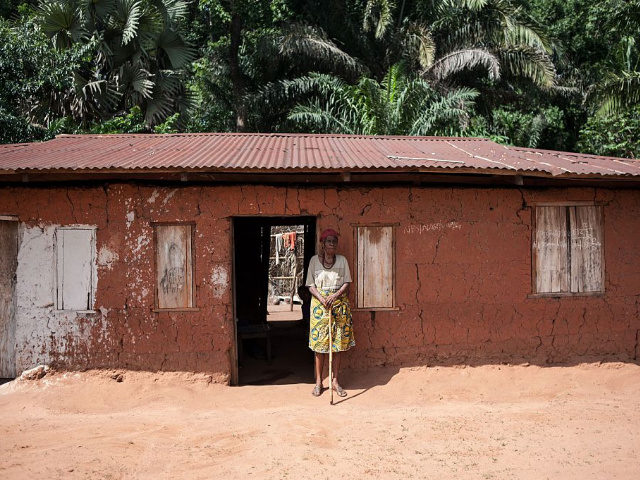American troops are helping African countries combat the “environmental degradation” allegedly stoking violence and fueling overall political, economic, and social unrest on the continent, a top U.S. general noted in an annual assessment of United States military activities in Africa.
Gen. Thomas Waldhauser of the U.S. Africa Command (AFRICOM) listed “environmental degradation” as a top menace gripping the continent, along with jihadi groups like the Islamic State (ISIS/ISIL) and America’s strategic competitors China and Russia.
In AFRICOM’s 2019 posture statement, presented to the Senate Armed Services Committee in the form of written testimony prepared for a hearing on Thursday, the top U.S. general declared, “Over the next decade, Africa will be shaped by the increased presence of external actors and the effects of environmental change.”
He later added:
Africa’s future depends on urgent action to address the needs of growing populations, mitigate the influence of harmful activities, and combat the effects of environmental change. U.S. Africa Command’s role within the Diplomacy, Development, and Defense construct supports partner efforts to enable economic growth and prosperity by providing a stable security environment.
The general testified that AFRICOM is working with America’s African partners to deal with the “environmental change” menace, telling senators:
Environmental degradation and the overuse of natural resources exacerbate weak or ineffective governments who are unable to respond and cope with their already serious, on-going political, economic, and social challenges. U.S. Africa Command and our partners are investing to build the capability and capacity of governance, infrastructure, and defense institutions, so African governments can mitigate the effects of environmental degradation.
This can be accomplished with, for example, sustainable electric grids, viable water treatment facilities, environmentally-sound agricultural developments, and professional security forces.
Waldhauser described “environmental change” in Africa as an “emergent challenge” that is impacting the continent’s already fragile security.
He noted that competition for resources has resulted in clashes between farmers and herders in places like Nigeria, the most populous country in Africa.
Waldhauser wrote:
A large number of Africans make their living on the land, whether they grow crops or raise livestock, and many live at a subsistence level. Settled farmers and nomadic herdsmen are increasingly engaged in land-use disputes, which are emerging as major driver of conflict in central Mali, through the Middle Belt Region of Nigeria, in South Sudan, and into the Central African Republic.
In Nigeria, the Muslim Fulani herdsmen group has surfaced as one of the nation’s most lethal terrorist groups, often clashing with predominantly Christian farmers.
Waldhauser asserted that resource competition is triggering “violent conflict” in various African regions.
“Armed groups and criminal networks exploit this situation, leading to human trafficking, slavery, and more violence,” he stated.
While it is unclear exactly how much AFRICOM is spending on combating environmental change, the U.S. military is investing billions of dollars annually on environmental programs across the world.
U.S. President Donald Trump removed “climate change” — added by his predecessor — from the list of threats mentioned in the White House’s National Security Strategy (NSS). However, the U.S. intelligence community’s latest World Threat Assessment mentioned “the negative effects of environmental degradation and climate change” as a significant menace facing the United States.
The Pentagon announced last November that the Trump administration is expected to pull out more than 700 American troops from Africa as part of a realignment of forces around the world to focus on taking on strategic adversaries like China and Russia. Under Trump, the U.S. military is transitioning its primary efforts away from counterterrorism and focusing on Russia and China, both of which maintain a presence in Africa.

COMMENTS
Please let us know if you're having issues with commenting.